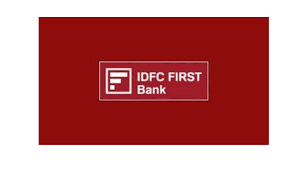The deal, approved by RBI and CCI, marks another major foreign investment in India’s banking sector, reducing SBI’s stake in Yes Bank to 10.8%.
New Delhi (Economy India): In a landmark transaction, State Bank of India (SBI) has sold a 13.18% stake in Yes Bank to Japan’s Sumitomo Mitsui Banking Corporation (SMBC) for ₹8,889 crore. The deal involves the transfer of 4.13 billion shares at ₹21.50 per share, furthering SMBC’s presence in India’s financial sector. Following the announcement, SBI’s stock rose over 3% to close at ₹856.90 on Tuesday, reflecting investor confidence in the move.
Deal Structure and Approvals
SBI disclosed that the sale was completed after receiving all necessary approvals. The Reserve Bank of India (RBI) approved the transaction on August 22, while the Competition Commission of India (CCI) gave its nod on September 2.
SBI’s central board’s executive committee had already cleared the proposal in its May 9 meeting. After the sale, SBI’s stake in Yes Bank stands reduced to 10.8%.
SMBC’s Expanding Role in Yes Bank
This is not SMBC’s first investment in Yes Bank. Earlier this year, the Japanese financial giant acquired a 20% stake in Yes Bank for ₹13,483 crore, marking one of the largest foreign direct investments in the Indian banking industry.
The 20% acquisition included 13% from SBI and nearly 7% from other Indian banks such as Axis Bank, Bandhan Bank, Federal Bank, HDFC Bank, ICICI Bank, IDFC First Bank, and Kotak Mahindra Bank. These institutions had originally invested in Yes Bank in 2020 during its government-led reconstruction plan at ₹10 per share.
RBI has already allowed SMBC to increase its shareholding in Yes Bank up to 24.99%. The bank is expected to acquire the remaining 4.99% either from private equity investors like Advent and Carlyle or through preferential share issuances. Importantly, RBI clarified that even with this expanded stake, SMBC will not be categorized as Yes Bank’s promoter.
Market Reaction
The deal had an immediate positive impact on market sentiment. SBI’s shares rose 3.05% to ₹856.90, while Yes Bank closed slightly higher at ₹21.07, up 0.29%.
Yes Bank’s stock has seen mixed performance over different time frames:
- 1 month: Up 10%
- 6 months: Up 31%
- 1 year: Down 10%
The bank’s current market capitalization stands at ₹66,310 crore.
Yes Bank’s Presence and Operations
Founded in 2004 by Rana Kapoor, Yes Bank has grown into a significant private sector lender in India. Headquartered in Mumbai, it provides a wide array of banking and financial services.
The bank’s footprint includes:
- 1,200+ branches across 710+ locations in India
- 1,300+ ATMs
- 8.2 million+ customers
At the helm is Prashant Kumar, Managing Director and Chief Executive Officer, who has been steering the bank through its recovery and expansion since the 2020 crisis.
Significance of the Deal
This transaction marks a crucial moment for India’s banking sector:
- For SBI: The stake sale unlocks nearly ₹9,000 crore in capital, strengthening its balance sheet while maintaining a significant presence in Yes Bank.
- For Yes Bank: With SMBC’s backing, the bank gains greater financial stability and global recognition, aiding its long-term growth and trust among depositors.
- For India’s banking sector: The investment highlights strong foreign confidence in the Indian financial system, particularly in post-restructuring institutions.
The SBI-SMBC deal underscores the increasing global interest in India’s banking ecosystem. By reducing its stake, SBI has unlocked substantial capital while retaining influence in Yes Bank’s growth trajectory. For SMBC, the move signals a stronger foothold in India’s rapidly expanding financial services market.
As Yes Bank continues its recovery journey, backed by global investors and regulatory support, this deal could serve as a template for future foreign investments in Indian banks, reaffirming India’s status as a leading destination for capital inflows.
(Economy India)











